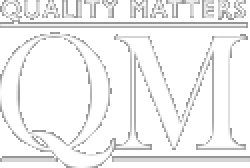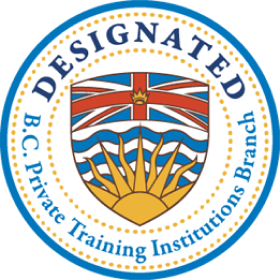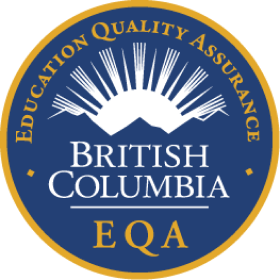GET MORE INFO NOW!!!
Start your journey towards a new career today by requesting program details.
 Financial Assistance
Financial Assistance
 Career Options
Career Options Start Dates
Start Dates Job Opportunities
Job Opportunities

Posted by AOLCC | 9th September 2025

If you’re considering a career in healthcare administration, it helps to start by understanding the key medical office assistant responsibilities. MOAs are often the first people patients meet when they arrive. Their role combines practical skills with compassion, creating a smooth experience for patients and healthcare providers. By knowing what this job involves, you can understand the role and explore how it contributes to a caring, efficient medical office.
The demand for skilled MOAs continues to grow as clinics and hospitals look for professionals who can balance patient interaction with essential administrative support. What are the duties and responsibilities of a medical office assistant?
From organizing records to ensuring compliance, medical office assistants require various skills. Learning about medical office assistant duties gives you a clearer sense of what it takes to succeed.
One of the most important medical office assistant duties is being the first point of contact for patients. Whether greeting patients at the front desk, answering phone calls, or scheduling appointments, MOAs set the tone for a positive experience. Good communication and empathy are essential skills here, as patients may be feeling nervous or unwell when they arrive.
Behind every smooth-running clinic or doctor’s office is an MOA keeping paperwork, files, and schedules in order. MOAs manage patient records, process billing and insurance forms, and organize referrals. These tasks require strong attention to detail and accuracy since medical records are sensitive and mistakes can impact patient care.
If you’d like to explore this further, our blog on the duties of a medical office assistant goes into more depth.
 Handling administrative tasks is one of the most essential duties of a medical office assistant.
Handling administrative tasks is one of the most essential duties of a medical office assistant.
While MOAs don’t replace medical staff, they provide valuable support in clinical settings. Medical office assistant responsibilities may include preparing examination rooms, updating charts, taking basic patient information, and ensuring equipment is stocked and ready. These tasks allow doctors and nurses to focus more fully on patient care, making the MOA a vital part of the healthcare team.
Medical offices handle highly sensitive information, and MOAs must follow strict privacy and compliance guidelines. This includes maintaining confidentiality, adhering to data security practices, and ensuring that office procedures align with healthcare regulations. A solid understanding of confidentiality is one of the most important professional skills for MOAs to master.
Beyond daily medical office assistant responsibilities, hard skills for a medical office assistant include proficiency in medical office software and scheduling systems, knowledge of medical terminology and basic anatomy, and accuracy in handling billing, coding, and insurance documentation. These roles require strong typing and computer literacy as well as organizational skills for recordkeeping and multitasking.
Of course, success also depends on soft skills like empathy, professionalism, and problem-solving, qualities that help MOAs manage the challenges of a busy healthcare environment. For a closer look, explore our blog on challenges for medical office assistants.
 The Medical Office Assistant program helps you build the service skills needed to succeed.
The Medical Office Assistant program helps you build the service skills needed to succeed.
At AOLCC, the Medical Office Assistant program helps you build the clerical, administrative, and customer service skills needed to succeed in a healthcare setting. In just 42 weeks, you’ll learn medical terminology, office procedures, anatomy and physiology, transcription, and clinical practices, while also gaining proficiency in Microsoft Office and bookkeeping. A 75-hour placement in a healthcare facility gives you the chance to apply these skills in the real world, and graduates also earn the Certified Medical Assisting Professional (CMAP) designation.
With flexible scheduling, ongoing enrollment, and the support of AOLCC’s Integrated Learning System™, you can start your training when you’re ready and learn at your own pace. Graduates are prepared to work in physicians’ offices, clinics, long-term care facilities, and other healthcare environments, stepping confidently into meaningful careers as valued members of the healthcare team.
Are you looking for a comprehensive Medical Office Assistant program?
Contact AOLCC for more information.
Question: What are the duties and responsibilities of a medical office assistant?
Answer: From organizing records to ensuring compliance, medical office assistants require various skills.
Question: What are the hard skills required for a medical office assistant Job?
Answer: Hard skills for a medical office assistant include proficiency in medical office software and scheduling systems, knowledge of medical terminology and basic anatomy, and accuracy in handling billing, coding, and insurance documentation.
Start your journey towards a new career today by requesting program details.
This fun, online quiz takes 3 minutes to complete and you'll get a personalized report. Identify your strengths and social style plus the training and positions you're best suited for.Get Your Career Training Readiness Score Now
With campuses in four strategic locations, AOLCC is your go-to career college in BC
Each AOLCC campus serves as a local hub for career skills training and community connection. Whether you are searching for colleges in Kamloops, BC, colleges in Nanaimo, BC, or a career college in Kelowna, our campuses are easily accessible and connected to local employers.
699 Victoria Street
A welcoming, centrally located campus in the heart of the city
347 Leon Avenue
Serving the Okanagan with flexible programs for career starters and changers
1551 Estevan Road
Conveniently located for students on Vancouver Island seeking certificate programs
754 Goldstream Avenue
Offering diploma and certificate programs to students in Greater Victoria and beyond
Our campuses are accessible via public transit, and many offer nearby parking options. If you’re looking for career training in other BC locations, we can connect you with our extended AOLCC network.



B.C. Private Training
Institutions Branch

B.C. Education
Quality Assurance